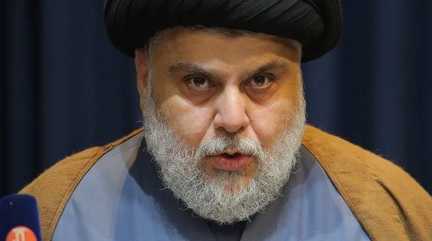
15 Jan 2022; MEMO: Muqtada Al-Sadr, the Iraqi Shia cleric whose party gained the majority in the latest elections, could rule out pro-Iran Shia parties from the government, according to analysts, which could have catastrophic results.
Rai Al-Youm online newspaper reported analysts and monitors explaining that ruling out the pro-Iran parties and forming a government of Sadrists, Sunnis and Kurds would undermine the Shia political majority.
While the pro-Iran parties are heavily armed, the analysts explained that excluding them from the government might ignite a civil war because of the political differences and different regional and international allies.
The pro-Iran parties consider Sadrists, Kurds and Sunnis to be close to the US, which they have been fighting for years to leave the country.
Since the ousting of late Iraqi President Saddam Hussein, pro-Iran Shias have been dominating the military militias, which allegedly fought against the US occupation and dominated the political system.
They have also carried out several massacres against the Sunnis. In 2014, they killed many Sunnis in reprisal attacks allegedly carried out by Daesh.
Analysts stated that Sadrists, backed by Sunnis and Kurds, re-elected a parliament speaker who is being opposed by the pro-Iran camp.
Parliament is yet to elect the country's president, who will commission the largest parliamentary bloc to form the government. Sadrists would be dominating the entire political process.
Last week, Al-Sadr announced in a statement that his party would form a majority government. Analysts claim that this means he would see a government including Sadrists, Sunnis and Kurds.
Riyadh Massoudi, senior leader of the Sadrists, responded: "Let's be realistic… the losers do not form the government."
He added: "There is a strong front that includes the Sadrists, all the Sunnis, most of the Kurds and many of the independents… All of these are able to form a new government in a very short time."
Legal expert Ahmed Younis explained: "Sadrists are going ahead in the formation of a national majority government. The opposition see that this will lead the Shia to lose the political majority in the future."




